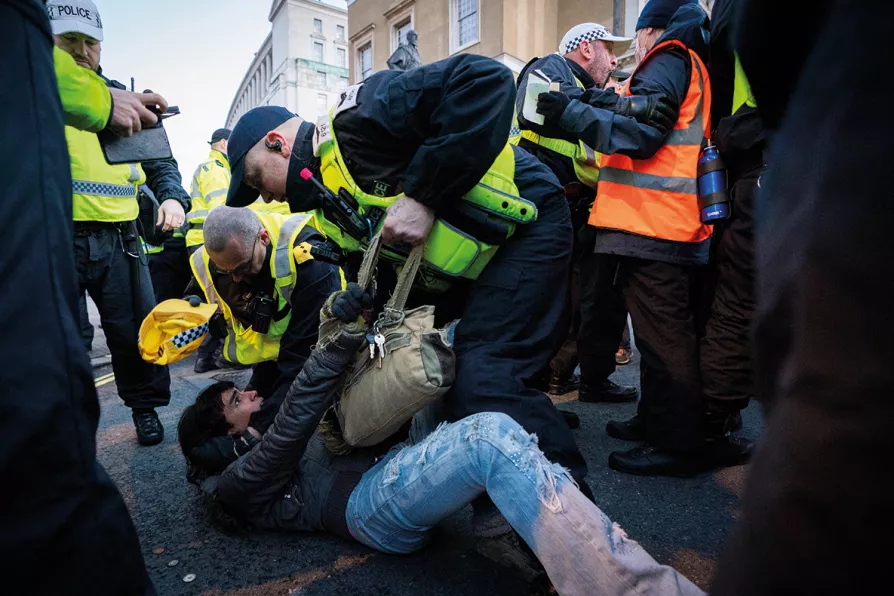Labour prospects in May elections may be irrevocably damaged by Birmingham Council’s costly refusal to settle the year-long dispute, warns STEVE WRIGHT

 A young protester is pounced on by police officers on Whitehall, December 2023
A young protester is pounced on by police officers on Whitehall, December 2023
THE right-wing media is full of bellicose Tories, including the Prime Minister, who say that Palestinian protests are “aggressive mobs” that are apparently threatening democracy. Yet more measures are planned to “crack down” on protest, except for ones that the Tories support such as farmers, of course.
Before she was sacked as home secretary, Suella Braverman said Palestinian protests were “hate marches” and protesters an “intimidating mob,” which is also what the reactionary thinker Edmund Burke said about the French revolution.
She then summoned up far-right groups who duly appeared and attacked police at the Cenotaph on Armistice Day. Meanwhile, crowds of many hundreds of thousands have continued to march peacefully calling for a ceasefire in Gaza in central London.

Who you ask and how you ask matter, as does why you are asking — the history of opinion polls shows they are as much about creating opinions as they are about recording them, writes socialist historian KEITH FLETT













